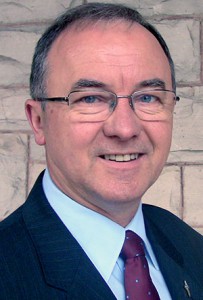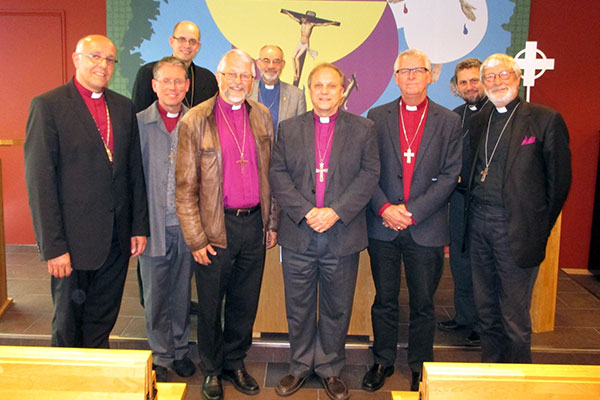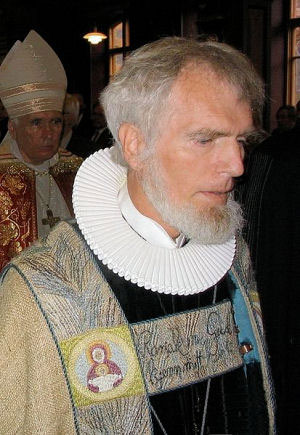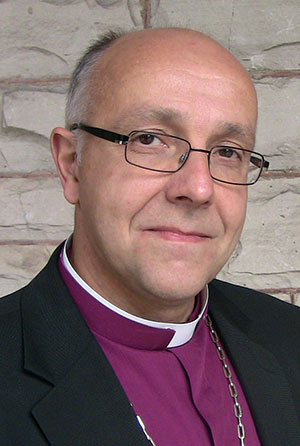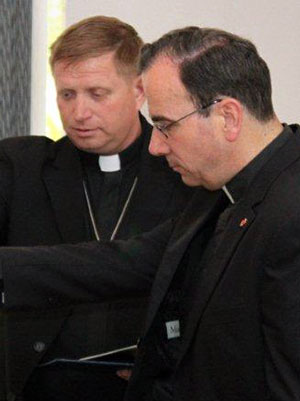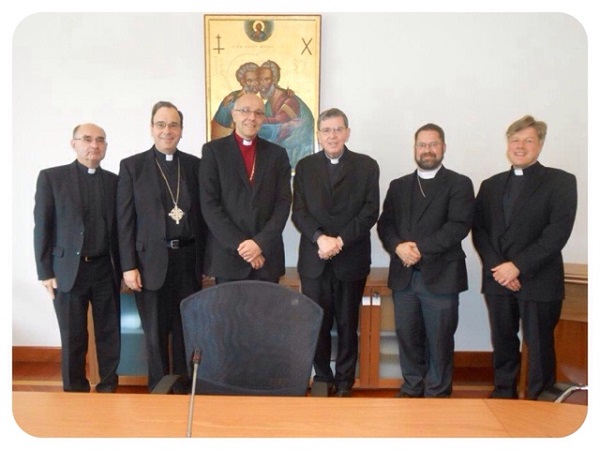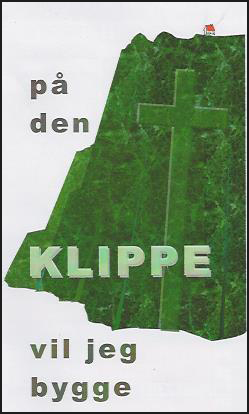
The logo for the ELFCD’s 2014 convention. In Danish, it reads “On This Rock I Will Build.”
DENMARK – The Evangelical Lutheran Free Church in Denmark (ELFCD) held its annual convention July 19-20 in Langeland. At that time, it released a Danish translation of the European Lutheran Conference (ELC) guidance document “Living in an Ecumenical World.”
The event saw 75 Danish Lutherans and guests gather together under the theme “On this Rock I Will Build.” Among other business, attendees heard presentations on the ELC’s 23 convention, held May 22-24, 2014 in Bleckmar, Germany, at which time “Living in an Ecumenical World” was adopted. Signatories of the document represent confessional Lutheran communities in Belgium, Denmark, France, Germany, Portugal, the United Kingdom, Finland, the Kyrgyz Republic, Siberia, Spain, Sweden, Switzerland, and the United States of America.
The Danish church reports that the guidance document was well received at its annual convention, and was commended to the church’s congregations for further study. Download the Danish translation (“At leve i en Økumenisk Verden”) of the document here.
The convention was followed by a four-day summer Bible Camp. Participants studied John 20-21 in depth, as well as the story of Gideon (Judges 6-8). Rev. George Samiec (Vice-Chairman of the Evangelical Lutheran Church in England and Secretary of the ELC) served as guest instructor and preacher for the event.
——————–

